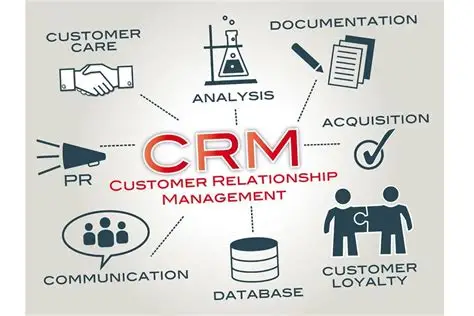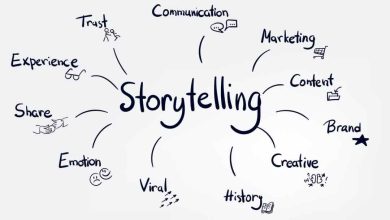Customer Relationship Management: Everything You Need to Know
Understanding Customer Relationship Management (CRM) and how it helps you build lasting customer relationships

In today’s business world, it’s not enough to simply attract customers; the real work lies in keeping them engaged, satisfied, and loyal. This is where Customer Relationship Management, often known as CRM, comes into play.
Every thriving business, whether a solo startup or a multi-branch enterprise, leverages consistent and intentional customer relationships to stay afloat. With rising competition and an increasingly informed market, entrepreneurs must go beyond transactional interactions.
They must build meaningful connections. But what exactly is CRM, who needs it, and how can it benefit your business? Let’s dive deep into this essential business tool.
Definition of CRM
Customer Relationship Management (CRM) refers to a set of integrated strategies, technologies, and practices that businesses/companies use to manage and analyse customer interactions throughout the customer journey.
The goal is to strengthen relationships, improve customer retention, and ultimately drive sales growth. However, beyond that simplicity lies a special system that helps businesses stay organised, informed, and proactive in their dealings with customers.
Basically, CRM is about understanding customers: who they are, what they want, how they behave, and how they feel about your brand. It combines data and communication tools to provide businesses with a comprehensive view of their customer base, enabling them to engage with each individual more effectively.
It could be in the form of tracking email responses or follow-up calls to analysing purchase histories. Put together, businesses through CRM turn all the scattered customer data into actionable insights.
Who Is CRM For?
One of the mistakes many small business owners make is that they believe CRM is meant only for big companies with a robust customer base and huge transaction records. But that assumption couldn’t be further from the truth. CRM is for every business that has people buying and interacting with it.
It doesn’t matter whether those people are existing customers, potential leads, repeat buyers, or even suppliers. If you care about improving communication, reducing chaos in your customer engagement process, and creating a more organised flow in how you serve people, then CRM is for you.
For solo entrepreneurs, a CRM offers a way to keep track of every lead without relying on scattered notes or your memory, which can’t retain enough information for long.
For growing businesses, it provides a central system where the sales, customer service, and marketing teams can stay aligned. And for large corporations, CRM allows scalability, that is, ensuring that customer interactions remain consistent and personal, no matter how many people are in the system.
It’s safe to say, then, that any business interested in long-term relationships, rather than short-term transactions, needs Customer Relationship Management.
Here is where it gets interesting: CRM is not limited to customer-facing industries alone. Surprising, right? Well, you read that quite right.
Are you a Freelancer, real estate agent, consultant, content creator, or even an NGO? The good news is that you can benefit from CRM because relationships are at the heart of every successful business.
Benefits of CRM
The advantages of CRM go far beyond simply storing or analysing customer information.
1. Improved Customer Satisfaction
One of the most significant benefits is improved customer satisfaction. When you have a clear record of what each customer’s history, preference, and issue look like, it becomes easier to personalise your interactions with them.
Customers don’t like repeating themselves. They appreciate it when you remember their preferences or follow up on an issue without being reminded. That level of attention can turn a one-time buyer into a loyal advocate.
2. Increased Productivity
Another powerful benefit is increased productivity. Customer Relationship Management tools automate routine tasks like sending follow-up emails, assigning leads, or setting reminders for check-ins.
This allows your team members to focus more on strategic tasks like closing deals or crafting better marketing campaigns. When you no longer have to chase scattered spreadsheets or dig through inboxes for updates, you naturally work smarter and faster.
3. Helps with Data-Driven Decisions
Moreover, CRM helps businesses make data-driven decisions. You no longer have to rely on guesswork to know which marketing campaigns worked best or which customers are most valuable.
With proper CRM insights in your toolkits, you can see which stage of your sales funnel needs the most attention, which customers are due for re-engagement, and which products generate the most sales.
4. Consistency in Communication
Another overlooked yet crucial benefit is consistency in communication. Whether a customer speaks to someone in sales, customer service, or marketing, they should receive the same level of care and professionalism.
CRM creates this consistency by providing access to shared notes, timelines, and customer profiles, so everyone on the team stays informed. As a result, customer trust increases because they feel recognised and valued, not just sold to, as many businesses would do.
5. Contributes to Long-term Growth
Lastly, CRM contributes to long-term growth. Satisfied customers tend to refer others, leave positive reviews, and stick around longer, resulting in repeat purchases.
Types of CRM
While all CRM systems serve the same foundational goal, that is, managing customer relationships, they often come in different forms based on business needs. Understanding the different types helps you choose the one that fits your business best.
1. Operational Customer Relationship Management
Operational CRM mainly focuses on automating and improving customer-facing processes like sales, marketing, and customer support. This type is most helpful for businesses looking to streamline their day-to-day activities.
For instance, it can automate lead assignment, email follow-ups, and service requests. Operational CRM ensures that customers are not just engaged but also efficiently managed through every stage of their journey.
2. Analytical Customer Relationship Management
On the other hand, Analytical CRM looks deep into customer data. It aims to extract meaningful insights from customer behaviour and buying patterns. Analysing data like purchase history, website visits, or email responses helps businesses identify trends and predict future needs of their customers.
This type is best for companies that want to make informed decisions about what products to promote, which customers to prioritize, or how to adjust their sales strategy.
Then there’s Collaborative CRM, which focuses on ensuring that all departments involved in customer interactions are on the same page.
3. Collaborative Customer Relationship Management
Whether it’s sales, support, marketing, or product development, everyone can access updated customer information and contribute to a seamless experience.
For example, if a customer reaches out to support and then later contacts the sales department, collaborative CRM ensures both teams are aware of the previous interaction.
Some modern CRM platforms blend these three types into one flexible system, allowing businesses to use features from each category. This makes it easier for entrepreneurs and teams to manage contacts, gain insights, and improve communication without juggling multiple tools.
Conclusion
Customer Relationship Management is not just a tool; it’s a system that empowers businesses to build strong, lasting relationships with their customers. Whether you’re a freelancer managing a few leads or a business owner juggling hundreds of clients, CRM helps you stay organised, proactive, and responsive.




